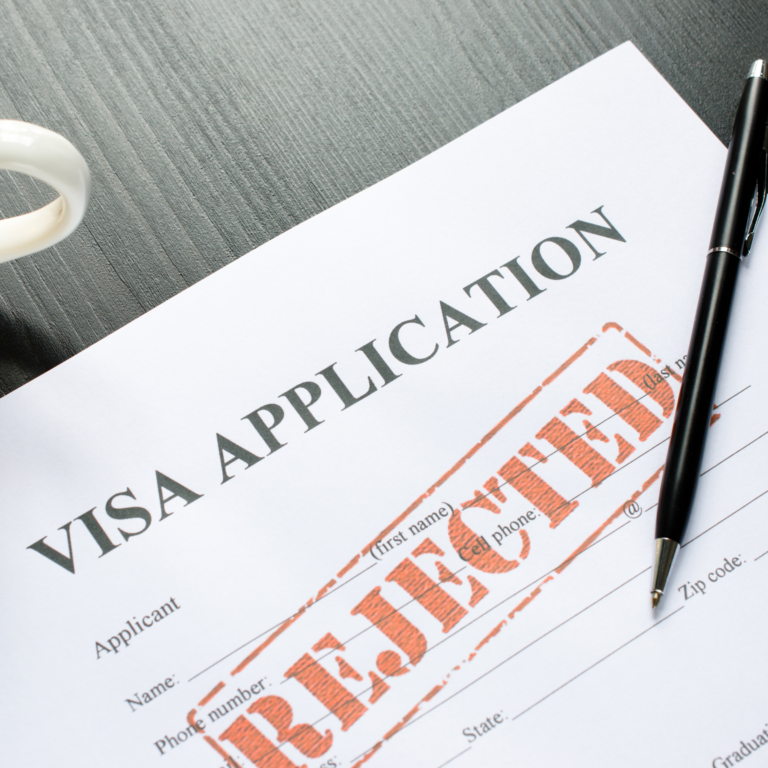The costs of immigrating to Canada

Immigration to Canada is a popular topic for people looking to establish a new life in a country offering economic opportunities and a high quality of life. Canada is renowned for its cultural diversity, high-quality education system, universal healthcare system and breathtaking scenery. Every year, thousands of people choose to settle in Canada for a variety of reasons, such as seeking employment, family reunification or access to a better education. However, it is essential to understand the costs associated with immigrating to Canada before making this decision. This article explores these costs in detail, to help prospective immigrants plan their financial transition. We'll also cover the proof of settlement funds required by Immigration, Refugees and Citizenship Canada (IRCC), how immigrants can finance their immigration process and settlement in Canada, and tips on how to manage their project budget wisely and avoid running out of money.
Immigration application fees
The process of immigrating to Canada involves a number of fees to be paid by applicants. These fees depend on the type of visa or immigration program chosen. Here are some examples of fees associated with the different categories:
a. Economic immigration: Approximately 1,365 $ CAD per adult (including processing fees and rights of permanent residence) and 230 $ CAD per child.
b. Study permits (including extensions) - per person: 150 $ CAD
c. Family Sponsorship Program - Sponsor your parents and grandparents: Sponsorship fee (75 $), processing fee for principal applicant (490 $) and Right of Permanent Residence fee (515 $)
d. Temporary Foreign Worker Program: Approximately 155 $ CAD per work permit application per person.
Evaluation of diplomas and professional skills
Before submitting an immigration application, candidates must have their educational and professional qualifications assessed by Canadian regulatory bodies. This assessment is necessary to determine whether the applicant's qualifications meet Canadian standards. Fees for this evaluation vary according to the organization and professional field, but generally range from 200 $ to 500 $ CAD.
Language tests
Candidates must also take English or French language tests to prove their proficiency in Canada's official language. The cost of these tests is approximately 250 $ CAD for the IELTS test (International English Language Testing System) and 280 $ CAD for the TEF test (Test d'évaluation de français).
Medical examination
A medical examination is required for all potential immigrants, and fees for this vary according to country and doctor. Average costs range from 200 $ to 350 $ CAD per person.
Legal and representation costs
If you choose to hire an immigration consultant or lawyer to help you with your application, costs will vary depending on the complexity of your case and the professional's fees. Fees can range from 1,500 $ to 6,000 $ CAD on average.
Translation and certification of documents
Documents submitted as part of your immigration application must be translated into English or French and certified by a certified translator. Translation costs vary depending on the language and length of the document, but the average charge is around 50 $ CAD per page. Document certification can cost between 20 $ and 100 $ CAD per document, depending on the type and complexity of the document.
Cost of relocation
Once your immigration application is approved, you'll need to factor in relocation costs, such as transportation, housing and day-to-day expenses. Here are some examples of relocation costs:
a. Airline tickets: Prices vary according to distance and season, but allow around 1,000 $ to 2,000 $ CAD per person for an international flight.
b. Accommodation : The cost of housing depends on the city and type of accommodation chosen. On average, monthly rents for a one-bedroom apartment in Canada range from 800 $ to 2,000 $ CAD.
c. Set-up costs: Set-up costs include expenses related to furnishing your home, purchasing clothing appropriate for the Canadian climate, and purchasing appliances. Plan on a budget of approximately 3,000 $ to 5,000 $ CAD for these initial expenses.
d. Temporary health insurance: Before benefiting from provincial health insurance, new immigrants must take out temporary private health insurance. Costs vary according to age, health and length of coverage, but expect to pay between 50 $ and 200 $ CAD per month per person.
Employment costs
New immigrants may also encounter additional costs when seeking employment in Canada. These costs may include:
a. Professional certification fees: To work in certain regulated trades, you may need to obtain professional certification in Canada. Costs vary depending on the trade and the certification body, but expect to pay between 100 $ and 1,000 $ CAD. b. Training or upgrading courses: To improve their skills and increase their chances of finding a job, some immigrants may choose to take training or upgrading courses. The cost of these courses varies according to length and subject, but you should expect to pay between 500 $ and 5,000 $ CAD.
Proof of settlement funds required by IRCC
IRCC requires prospective immigrants to prove that they have sufficient funds to support themselves and their families during their first months in Canada. The amounts required vary according to family size, and are regularly updated. In 2021, for example, a single immigrant was required to have at least 12,960 $ CAD, while a family of four was required to have at least 23,181 $ CAD in settlement funds. It's crucial to check the current amounts on the IRCC website before submitting your application.
Financing the immigration process and settling in Canada
Several financing options are available to help immigrants cover the costs of immigrating and settling in Canada:
a. Personal savings: Most immigrants finance their project using their personal savings. It's advisable to start saving as soon as possible to be able to meet unexpected expenses.
b. Family assistance: Family members can also help finance immigration by providing funds or temporary accommodation in Canada.
c. Bank loans: Some immigrants may be eligible for bank loans in their country of origin to finance their immigration project. It is important to check repayment conditions and interest rates before taking out a loan.
d. Scholarships and grants: International students can seek scholarships and grants to finance their studies in Canada. Many organizations and universities offer this type of financial support.
Manage your immigration project budget wisely
Effective budget management is essential to the success of your immigration project. Here are a few tips to help you manage your finances:
a. Plan ahead: Draw up a detailed budget for your immigration project, taking into account all the costs mentioned in this article. This will help you anticipate expenses and avoid financial surprises.
b. Save on costs: Look for ways to reduce costs, such as comparing translator rates or choosing affordable accommodation.
c. Keep track of your expenses: Keep a record of your spending to make sure you're sticking to your budget and adjust your consumption habits if necessary.
d. Establish an emergency fund: Set aside an emergency fund to deal with unexpected expenses, such as health problems or car repairs.
How to avoid running out of money
To avoid running out of money during your immigration project, it is essential to take certain precautions:
a. Be realistic: Estimate your costs realistically and build in safety margins for unforeseen expenses.
b. Limit unnecessary expenses: Avoid impulse purchases and concentrate on essential expenses related to your immigration and settlement.
c. Find a job quickly: Actively seek employment as soon as you arrive in Canada to ensure a stable income.
d. Adapt your lifestyle: Adapt your lifestyle to your budget and learn to live within your means, reducing unnecessary expenses.
Additional financial aspects for international students
In addition to the general costs associated with immigration, international students must take into account other financial aspects specific to admission and applying for a study permit in Canada.
a. Application fees: International students are generally required to pay an application fee for each university program to which they apply. These fees vary from institution to institution, but generally range from 100 $ to 200 $ CAD.
b. Tuition fees: Tuition fees for international students are generally higher than for domestic students. Depending on the program and institution, annual tuition fees can range from 15,000 $ to 40,000 $ CAD. It's important to find out the exact costs and include them in your budget.
c. Study permit fees: To study in Canada, international students must obtain a study permit. In 2021, the study permit application fee was 150 $ CAD. Check the current fees on the IRCC website before submitting your application.
d. Health insurance: International students are generally required to take out private health insurance to cover their medical expenses while in Canada. Some provinces offer free medical coverage to international students, while others require private health insurance. Costs vary according to age, health and length of coverage, but expect to pay between 600 $ and 1,000 $ CAD per year.
e. Living expenses: International students must also budget for daily expenses such as housing, food, transportation and entertainment. Living costs vary depending on the city and the student's lifestyle, but can range from 10,000 $ to 20,000 $ CAD per year.
By taking into account these additional financial aspects specific to international students, it is possible to better plan and anticipate the costs associated with admission and applying for a study permit in Canada.
Immigration to Canada is an exciting and rewarding project, but it's crucial to understand and anticipate the associated costs. By carefully evaluating the costs of application, skills assessment, language testing, medical examination, legal representation, translation, resettlement and employment, as well as proof of settlement funds, prospective immigrants can better plan their financial transition. By exploring different financing options and managing their budget wisely, immigrants can ensure their financial success in Canada. Following the tips mentioned in this article will not only help avoid running out of money, but also facilitate integration into Canadian society and take full advantage of the opportunities offered by this magnificent country.






